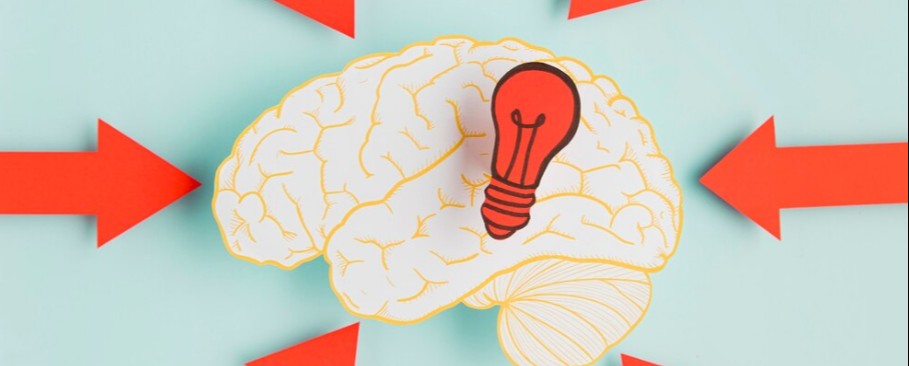
Food and Mood

Food and mood are intimately and inherently connected. If you have ever felt the energizing effects of a cup of coffee or the uplifting feeling that can come after eating a nutritious meal, you understand this connection. Eating the right foods can help you feel more energized, focus better and even improve your overall mental health. On the other hand, eating the wrong foods can make you feel sluggish, irritable and even depressed. That's why, gaining an understanding of how the food you eat affects your mood can be an important first step towards managing stress and creating a happier, healthier life.
The Effects of Processed Foods and Unhealthy Eating
Processed foods, such as chips and candy bars, are often high in sugar, saturated fat and sodium. Eating unhealthy food can lead to inflammation, which has been associated with mental health conditions such as depression and anxiety.
Studies show consuming an excessive amount of omega-6s can cause the body to produce chemical compounds which could potentially spark inflammation in the brain. Research shows consuming an excessive amount of sugar may lead to a surplus of glucose in the brain. This can subsequently cause memory loss and hinder one's ability to learn due to decreased plasticity in the hippocampus - which is responsible for controlling memories. A study discovered people who consumed ultra-processed foods such as sugary baked goods and sodas were more likely to experience mild depression. Another study found consuming a diet overloaded with fried foods has been linked to diminished scores on memory and cognition tests. Additionally, processed foods are often low in essential vitamins and minerals, which can lead to deficiencies that can negatively impact mood.
How Food Can be Beneficial for Your Mood and Mental Health?
Research has found some foods can be beneficial in managing certain mental health conditions, such as depression and anxiety. Certain foods, such as those that are high in antioxidants and omega-3 fatty acids, have been linked to improved mental health. Eating a diet rich in fruits, vegetables, whole grains and lean proteins can provide essential nutrients that are important for mental health.
Eating a healthy diet can also help regulate your blood sugar levels, which is important in managing mood. When blood sugar drops, you might experience feelings of irritability, anxiety and fatigue. Eating healthy snacks throughout the day can help maintain steady blood sugar levels and minimize mood swings.
5 Tips for Eating for Mental Health
Your mental health is just as important as your physical health. However, when it comes to food and mood, there is no one-size-fits-all solution. What works for one person may not work for another, so it's important to find out which types of foods work best for you.
It is important to note before adding or removing anything from your diet, it is always best to speak with a healthcare professional. Here are some tips on how to make food choices which can help improve your mental health:
1. Eat Nutrient-Rich Foods
Eating a variety of nutrient-dense foods is key to maintaining good mental health. Eating plenty of fruits, vegetables, whole grains and lean proteins helps provide essential nutrients that are important for overall well-being. Rainbow-coloured fruits and vegetables are especially beneficial, as they provide a range of vitamins, minerals, antioxidants and fiber.
2. Avoid Sugar and Refined Carbs
Sugar-rich food or processed grains can cause spikes and drops in blood sugar levels, which can worsen mood swings. Try to limit your intake of refined carbohydrates, such as white bread and pastries.
3. Choose Healthy Fats
Healthy fats, such as those found in nuts, seeds, avocado and olive oil are important for brain health. Eating a diet that is rich in healthy fats such as Omega 3 can help improve mood and cognitive function.
4. Eat Mindfully
Eating mindfully means paying attention to how food makes you feel. Noticing how different foods affect your mood and energy levels can help you make better food choices in the future.
5. Get Enough Sleep
Getting enough quality sleep is essential for mental health. Poor sleep can worsen symptoms of depression and anxiety, so try to get 7-9 hours of sleep each night.
By understanding the connection between food and mood, you can make healthier choices which will ultimately help improve your mental health. Eating a balanced diet, avoiding processed foods and getting enough sleep are all important steps in managing your mental health. With the right food choices, you can ensure your mind and body are functioning optimally.
Articles
Build your awareness and get inspired with our researched articles on how you can strengthen your well-being
Popular Topics
An OTP has been sent to the email address
provided.
Please check your Inbox and Spam folders.

What Would You Like to Speak with a Specialist About?
Mental Fitness Journey starts Now!
Chearful Connects you with Top-tier Qualified Wellness specialists for the Price of a cup of Coffee!

Next Steps
- A Client Team member will reach out to you to schedule a session with the most suitable specialist.
- You will receive an email with a 10% Discount Code* for your 1st session.
- We invite you to Explore the Platform & Sign Up today! *Upto a maximum of $10 discount on a session purchased




 1587 Read
1587 Read





.jpg)








.png)
.jpg)
.jpg)
.jpg)

















.jpg)
.jpg)


























































